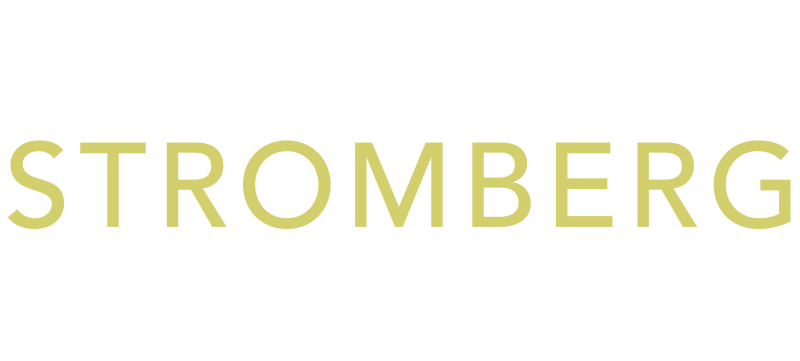In recent years, there has been an emergence of Indigenous-led justice systems across Canada and the world. In 2016, the Mohawk Band Council of Akwesasne introduced what is considered the first court in Canada for and by Indigenous people.[1] Similarly, other Indigenous-led justice systems have begun to develop across the country, such as the BC First Nations Justice Strategy and the Court of Kahnawà:ke, which considers an array of legal disputes, including summary conviction offences, contested traffic tickets, and traditional laws.[2]
A Métis Judiciary in Saskatchewan
These trailblazing developments have inspired the Métis-Nation of Saskatchewan (“MN-S”) to begin the development of a Métis Judicial System (i.e., “Métis Kwayaskastasowin Judiciary”; “Tribunal”; “Court”; or “Body”) within the province.
What Does this Mean for Saskatchewan?
The current development of a Métis Judiciary in Saskatchewan leaves many Métis people, legal professionals, and the general public curious about how this body will operate in practice alongside the existing Canadian legal system.
Last summer, Sophia Lagimodiere and Kristian St. Onge were honoured to be invited, amongst a well-rounded group of Métis people in Saskatoon, to participate in and consult at a prototyping workshop on the new body. Moreover, on May 26, 2024, they virtually attended the MN-S Legislative Assembly, where Marilyn Poitras, the Principal Designer for the project, released a report updating the public on the status of the Métis Judiciary.
As discussed by Poitras, the Métis Judiciary is a dispute resolution alternative to the traditional court system. It would not replace the province’s current judicial system; rather, it hopes to provide further access to justice by tailoring itself to the unique needs and experience of Métis people. Furthermore, the Métis Judiciary aims to be independent from the political arm of MN-S.
This holistic body would be governed by the constitution of the MN-S, which governs Métis elections, citizenship, and harvesting disputes. Future matters that it is likely to preside over include MN- S laws, like specific harvesting matters, as well as divered criminal matters, sentencing, and disposition diversion. Recent developments, such as Bill C-92 and agreements between MN-S and the Federal Government, foreshadow that Métis Child and Family Services matters will also likely fall under the jurisdiction of the Métis Judiciary. Aside from helping to resolve disputes, the Judiciary will also include Education Programs, Swearing-In Ceremonies, Civil Marriages, and Adoptions.
What makes the Métis Judiciary particularly unique is that it is not lawyer-centered; it is for Métis people, by Métis people. Disputes plan to be adjudicated through a panel of 1 Métis Judge, 1 Elder, and 1 Youth. The resolution process would begin with a Facilitation Panel and, where needed, go to a Hearing Panel. Voting would be unanimous, but where a decision cannot be made, the majority rules.
Additionally, those eligible to use it may choose to be represented by whomever they feel most comfortable speaking to their interests in the resolution process, whether that be a Métis lawyer, family member, Elder, or other professional. It has community inclusion at its core.
While the Métis Judiciary development is still in its infancy, it poses an interesting time for Métis people, legal professionals, and the general public to reflect on how alternative dispute resolution opportunities can facilitate greater access to justice.
Please reach out if you have inquiries regarding this subject matter, and we would be more than happy to assist.
[1] Giuseppe Valiante, “Akewasne creates first court in Canada for and by Indigenous people”, CBC News (October 2, 2016), online: <https://www.cbc.ca/news/canada/montreal/akwesasne-indigenous-court-canada-1.3787969>.
[2] Angelique EagleWoman (Wambdi A. Was’teWinyan), “Envisioning Indigenous Community Courts to Realize Justice in Canada for First Nations” (2019) 56:3 Alberta Law Review 669 at 669.
Note: This article is of a general nature only and is not exhaustive of all possible legal rights or remedies. In addition, laws may change over time and should be interpreted only in the context of particular circumstances. This article is not intended to be relied upon or taken as legal advice or opinion. Readers should consult a legal professional for specific advice in any particular situation.
About the Author
Sophia Lagimodiere is a Student at Law at Robertson Stromberg LLP. She received her Juris Doctor degree from the University of Saskatchewan in 2023. She also holds a Bachelor of Arts (High Honours) in Political Studies with a Minor in Psychology from the University of Saskatchewan (2020).
Related News and Articles
Robertson Stromberg welcomes Brittany Bezmutko and Jesse Hayward
Robertson Stromberg is pleased to welcome associates Brittany Bezmutko and Jesse Hayward to the firm.Called to the bar in June 2022, Brittany Bezmutko has dedicated her practice to Family Law and Employment Law. While attending law school, Brittany volunteered with...
Saskatchewan Estate Litigation Update: Martin v Martin, 2022 SKCA 79
The recent Saskatchewan Court of Appeal decision in Martin v Martin, 2022 SKCA 79 offers a reminder of the litigation which can ensue when a person puts another family member on title, and a dispute later arises as to whether that person holds beneficial title, or,...
Case Commentary: Law Society of Saskatchewan v Abrametz, 2022 SCC 29
In a much-anticipated decision for professional regulators, the Supreme Court of Canada has released its decision in the case of Law Society of Saskatchewan v Abrametz, 2022 SCC 29. For those working in the professional disciplinary realm, the Saskatchewan Court of...
Saskatchewan Estate Litigation Update: Kaushik v Kaushik, 2022 SKQB 135
The recent Saskatchewan Queen’s Bench decision in Kaushik v Kaushik, 2022 SKQB 135, offers an overview of a situation in which multiple persons concurrently seek to be appointed as the sole administrator of an Estate. Overview: Sadhna Kaushik applied for appointment...
Saskatchewan Estate Litigation Update: McCabe v Kowalyshyn, 2022 SKCA 56
The recent Court of Appeal decision in McCabe v Kowalyshyn, 2022 SKCA 56, offers various lessons to Estate litigators. These include: The reality that court approvals of Estate land sales, under s. 50.5 of The Administration of Estates Act, SS 1998, c A-4.1, do not...
My Contractor Doesn’t Exist, Can I Sue?
It is common for contractors and other service providers to incorporate prior to starting a business. A corporation can provide a certain level of insulation from liability for the people who operate it, and in addition, allows for other advantages such as tax...
Jared Epp elected President of Saskatchewan Trial Lawyers Association
Congratulations to Jared Epp on his election as President of the Saskatchewan Trial Lawyers Association (STLA). The STLA is a voluntary association of civil and criminal trial lawyers dedicated to the pursuit of justice through education and advocacy. In its 37th...
What if I just don’t? A cautionary tale for those who ignore Saskatchewan’s new prompt payment requirements
For the past several years, we have been presenting to the construction industry the pending (and as of March 1, 2022, now in force) prompt payment provisions, which are now included in The Builders' Lien Act of Saskatchewan. A common question that arises during every...
Saskatchewan Estate Litigation Update: Choquette v Viczko, 2021 SKQB 167
The recent decision in Choquette v Viczko, 2021 SKQB 167, offers a new interpretation of s. 50.5 of the Administration of Estates Act (“Act”).Background: Under s. 50.5 of the Act, if an executor sells land to which a beneficiary is beneficially entitled, the executor...
Questioning for Family Lawyers
Join Tiffany Paulsen, Q.C. and other seasoned litigators to break down their most effective questioning techniques, providing you with the tools, tips and strategies you need to get the most out of your next questioning. Find out how to gather information, obtain...
What is: Defamation Law
Given the interest in the Johnny Depp and Amber Heard defamation trial, Sean Sinclair was asked by the Saskatoon StarPhoenix to explain some basic concepts about defamation law. The news article reviews the definition of defamation; how damages are assessed; and some...
Join Tiffany Paulsen, Q.C. at the STLA Spring Conference “Winning Without A Trial”
On May 6, 2022 Tiffany Paulsen, Q.C. will participate in a panel discussion about binding pre-trial conferences. Tiffany will share her thoughts about Saskatchewan’s new rules of court relating to binding settlement conferences and share effective strategy. You can...

